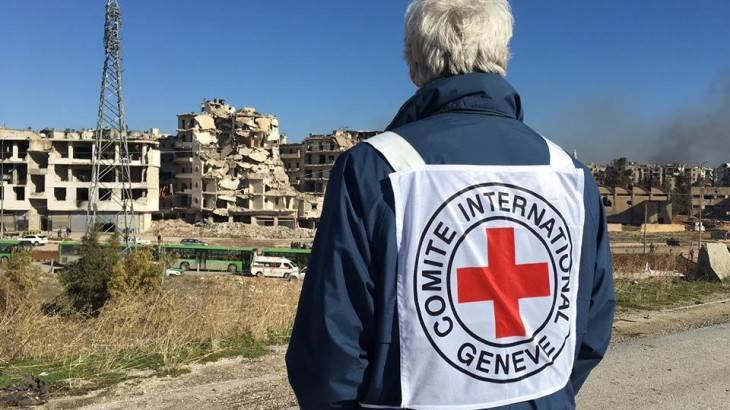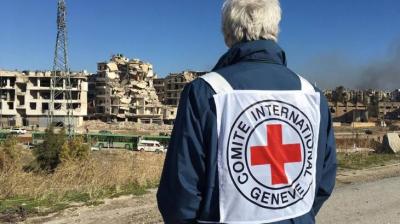The International Committee of the Red Cross (ICRC) has urged for immediate action to address the critical situation faced by people in Syria, emphasizing that the cost of inaction is "unbearable" and will primarily burden the population. Vulnerable local communities are confronted, in addition to conflict and the recent earthquake, with rampant inflation, economic contraction, a collapse of public health services, home destruction, and the risk of vital infrastructure failure.
During the seventh Brussels Conference on "Supporting the Future of Syria and the Region," hosted by the European Union, the ICRC noted that nearly 90% of Syrians currently live below the poverty line, with more than 15 million people in need of humanitarian assistance, a trend that has remained consistent over the years. The collapse of vital infrastructure is a pressing concern.
The ICRC confirmed that restrictive measures and international sanctions have hindered the import of necessary spare parts for maintaining critical infrastructure in major cities, which is why it continues to call for specific and sustainable exemptions to current sanction systems that do not include such provisions. Most water treatment plants have been damaged and are operating at reduced capacities, greatly reducing access to drinking water.
The committee revealed that it has intensified its response following the earthquake, in partnership with the Syrian Arab Red Crescent, to meet increasing needs by providing essential relief items, healthcare services, water, mental health support, and rehabilitating facilities, especially schools that are being used as shelters. Additionally, the ICRC, in collaboration with the Syrian Arab Red Crescent, has worked to improve access to drinking water and supplied transformers to restore electricity.
The ICRC called on donor countries to make immediate international commitments to maintain vital infrastructure and essential services, ensuring that comprehensive humanitarian responses can continue while sustainable solutions are sought.
### Carboni: We Must Act Now!
Fabrizio Carboni, the ICRC's regional director for the Near and Middle East, stated that the international community must confront the "harsh reality" that the situation in Syria is intolerable and that inaction will have serious repercussions for all concerned, hindering any prospects for sustainable recovery. He said, "We cannot turn a blind eye to the suffering of the people in Syria. We must prioritize the maintenance of vital infrastructure and comprehensive humanitarian responses."
Carboni added, "The collapse of these essential services is not a distant threat; the likelihood is very high, and it will have devastating consequences for the Syrian people if necessary measures are not taken to prevent it."
He continued, "If we invest in meeting these vital needs, we can generate a multiply positive impact. This impact will enable Syrians to improve their access to at least basic services, which will contribute to rebuilding their lives and provide humanitarian organizations with the necessary capacities to significantly enhance the effectiveness and impact of their aid. Let’s act now."




